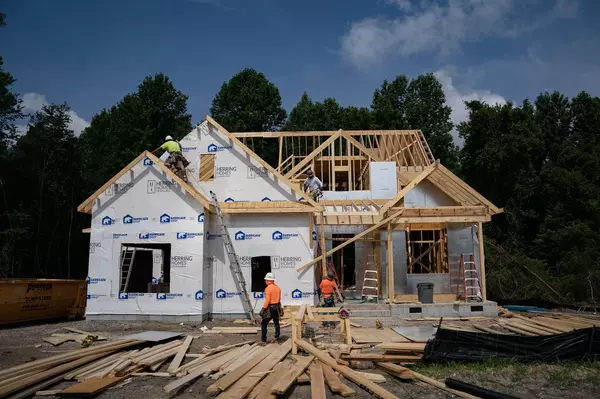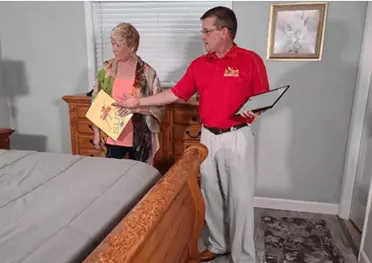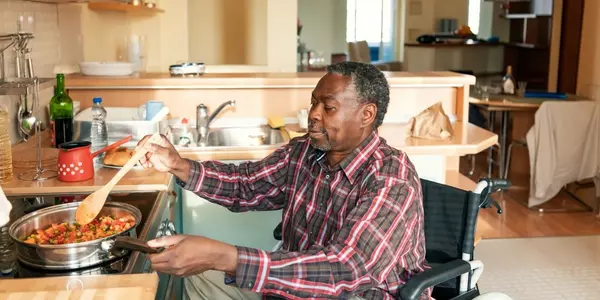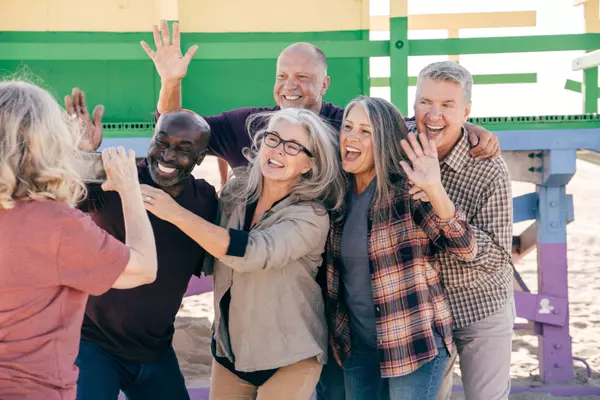Aging in Place: Can Your Home Support You as You Age?

As we grow older, our priorities begin to shift. Comfort becomes more important than square footage. Safety becomes more valuable than style. Familiarity starts to outweigh novelty. For many seniors, aging in place—remaining in the comfort of one’s own home rather than moving to an assisted living facility—feels like the ideal path forward.
But the real question is:
Can your current home support your evolving needs as you age?
What Does It Mean to Age in Place?
Aging in place isn’t just about staying put. It’s about maintaining independence, dignity, and quality of life while continuing to live in a familiar environment. It means ensuring your home adapts with you—so you don’t have to adapt to a home that no longer fits.
However, aging in place successfully requires a thoughtful look at your living space—something many homeowners overlook until a health scare or sudden change in mobility forces a quick decision.
Key Considerations for an Age-Friendly Home
Here are a few important questions to ask when evaluating whether your current home is truly equipped to support aging in place:
1. Is Your Home Safe and Accessible?
- Are there stairs that may become difficult to navigate in the future?
- Can you access your bedroom, bathroom, and kitchen without going up or down steps?
- Are there grab bars, slip-resistant flooring, and adequate lighting throughout the home?
Even small modifications—like replacing knobs with lever handles or installing a walk-in shower—can make a big difference in safety and comfort.
2. Does Your Home Support Mobility Changes?
As mobility needs evolve, wide hallways, step-free entryways, and single-level living become increasingly important. Even if you don’t use a mobility aid now, thinking ahead can save time, money, and stress down the road.
3. Is It Easy to Maintain?
A large home with lots of upkeep can become burdensome with age. Climbing ladders, shoveling snow, or handling repairs may no longer be safe or realistic. Downsizing or moving to a home with lower maintenance could offer peace of mind and freedom.
4. Are You Close to Support and Community?
Being near family, friends, healthcare, and community services is vital—not just for emergencies, but for staying connected. Isolation can be as detrimental to health as a physical hazard in the home.
How I Can Help as a Seniors Real Estate Specialist® (SRES®)
As a Seniors Real Estate Specialist®, I understand the emotional and practical complexities involved in making housing decisions later in life. Whether you’re looking to adapt your current home, explore downsizing options, or move closer to loved ones, I bring both compassion and expertise to guide you through the process.
Here’s how I support my senior clients and their families:
- Home assessments to determine if modifications are feasible or if a move makes more sense
- Trusted referrals to aging-in-place contractors, movers, and downsizing experts
- Guidance through selling, buying, or transitioning—on your terms and your timeline
This isn’t just about real estate. It’s about helping you live well—safely, comfortably, and confidently—in the place that makes the most sense for your next chapter.
Final Thoughts
Your home has served you well over the years, holding memories, milestones, and meaning. But as you plan for the future, it’s important to ask: Will it continue to serve you in the years to come?
Let’s explore your options together—whether that means making modifications, simplifying your lifestyle, or finding a home that fits your future.
Ready to start the conversation?
Let’s talk about how your home can continue to support you as you age—with dignity, safety, and independence.
📞 210-306-6747
📩 angelasanchez.txrealtor@gmail.com
🏡 Angela Sanchez, Seniors Real Estate Specialist® (SRES®)Categories
Recent Posts











Seniors Real Estate Specialist® (SRES®) | License ID: 759033
+1(210) 306-6747 | realtorangelasanchez@gmail.com
